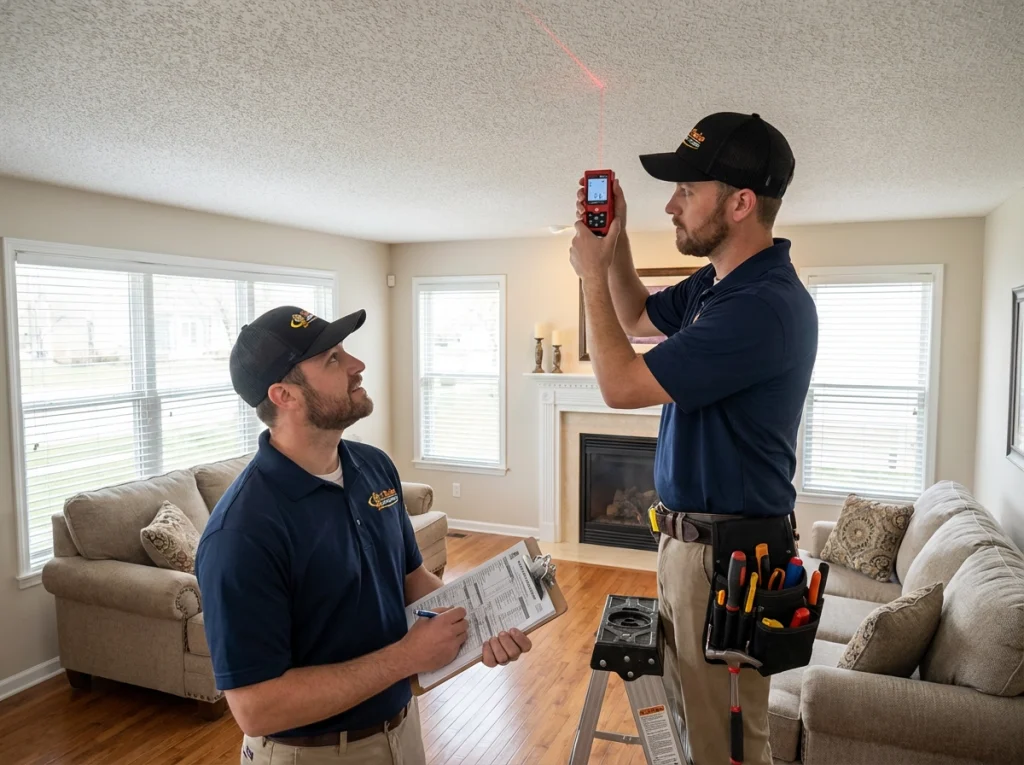When it comes to keeping your home comfortable, reliable, and energy efficient, making the right choice about heating repair and/or replacement in Fenton is essential. At First Choice, we know this decision can feel overwhelming, but we’re here to guide you every step of the way.

Understanding When It’s Time to Repair vs. Replace
Before committing to a full system upgrade, it’s important to recognize the signs that your heater may be reaching the end of its lifespan. While some issues require only a quick fix, others signal that replacement is the smarter and more cost-effective option.
Signs You May Only Need a Repair
- Minor performance issues: Uneven heating or inconsistent temperatures may stem from clogged filters, minor part failures, or thermostat issues.
- Recent installation: If your system is under 10 years old, most problems can typically be resolved with routine repairs.
- Isolated breakdowns: A single broken component, like an igniter or blower motor, doesn’t always warrant a full replacement.
Signs It’s Time to Replace Your Heating System
- Frequent repairs: If you’re calling us more often than you’d like, you may be spending more on fixes than the unit is worth.
- Rising energy bills: Older systems lose efficiency, causing higher utility costs even when repairable.
- Inconsistent comfort: If certain rooms stay cold no matter what you do, the system may be too old or improperly sized.
- Age of the system: Most heaters last 15–20 years. Anything beyond that is often considered living on borrowed time.
Efficiency Ratings: What They Mean for You
One of the biggest advantages of a new heating system is improved efficiency. Today’s units offer much higher AFUE (Annual Fuel Utilization Efficiency) ratings than older models. A higher AFUE means more heat is converted from the fuel you pay for—saving you money month after month.
At First Choice, we’ll help you compare efficiency ratings so you can choose a system that delivers reliable comfort without driving up energy costs. This upgrade doesn’t just improve performance—it also adds long-term value to your home.
Warranty Considerations: Protecting Your Investment
A new heating system often comes with strong manufacturer warranties, but not all warranties are created equal. When choosing your replacement, it’s important to review:
- Coverage length: How many years does it protect the heat exchanger, parts, or labor?
- Transferability: Can the warranty be transferred if you sell your home?
- Maintenance requirements: Many warranties require annual professional service to remain valid.
First Choice will walk you through every warranty detail so you know exactly what’s covered—no surprises, no guesswork.
Proper Sizing: Why Bigger Isn’t Better
Selecting the right size system is one of the most critical steps in the replacement process. An oversized unit will short-cycle, wasting energy and wearing out faster. An undersized unit will run constantly and still struggle to keep your home warm.
We perform precise load calculations to ensure your new system fits your home, your comfort needs, and your long-term efficiency goals.
Your comfort, safety, and peace of mind matter—and we’re here to make your upgrade seamless from start to finish.
